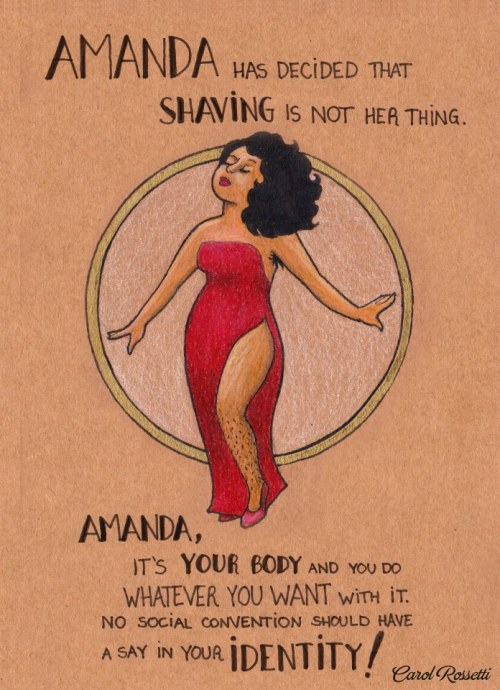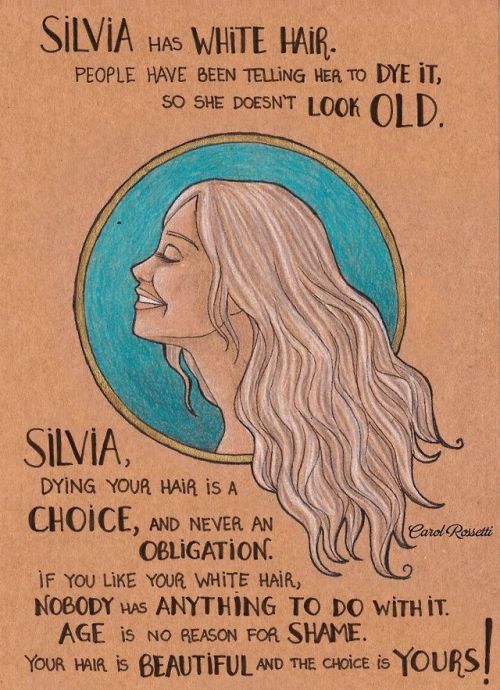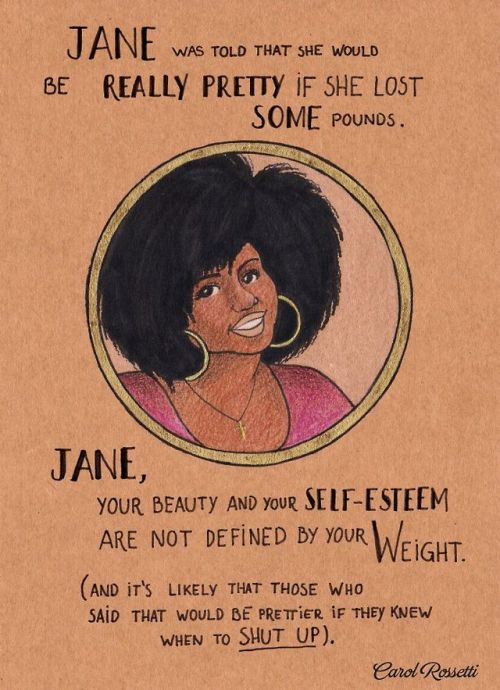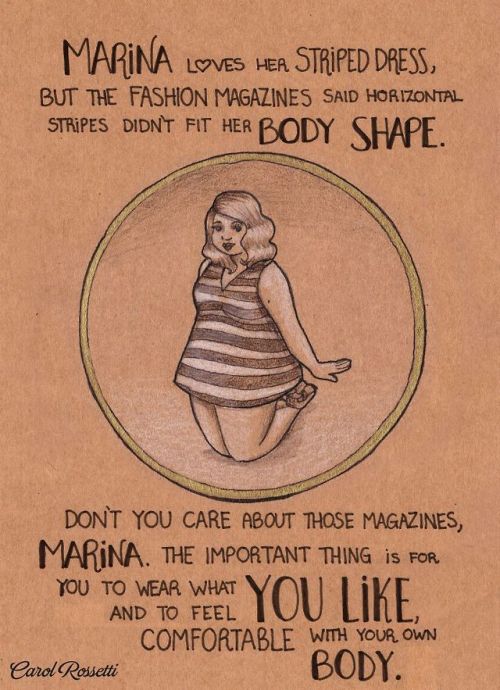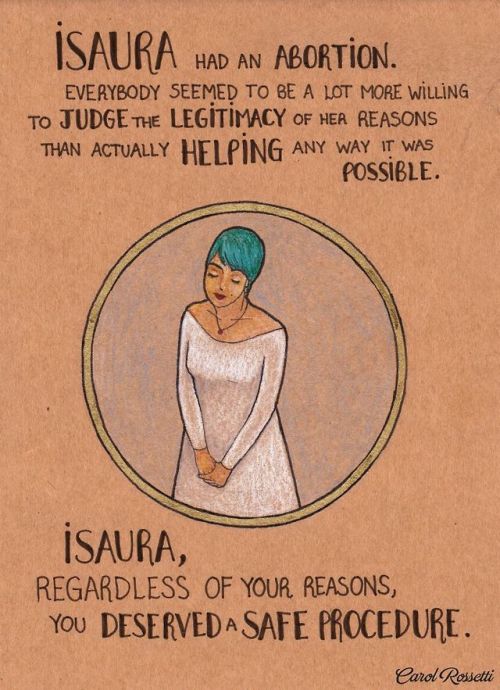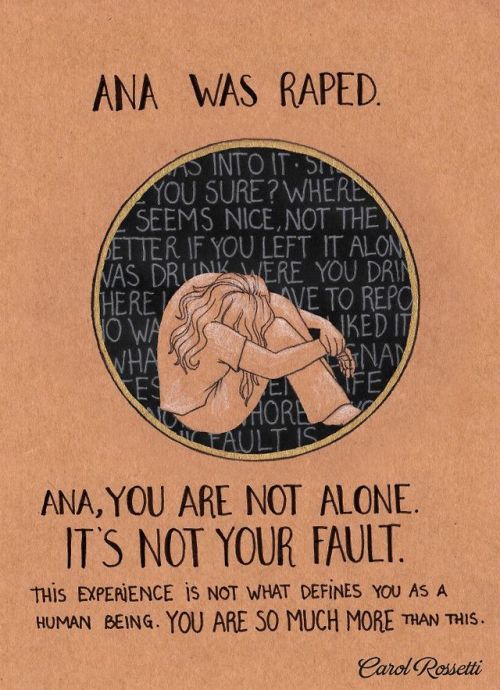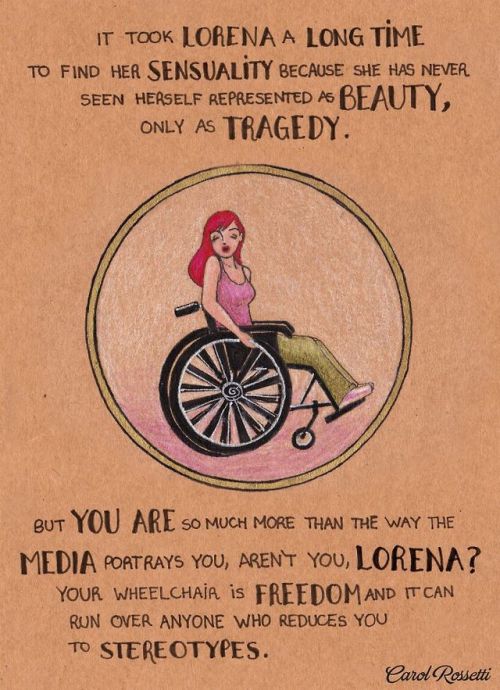enby-phoenix: virge-of-a-breakdown:saturnic-vapour:im-p-short:cc-the-pathetic-nobody:plushi1
enby-phoenix: virge-of-a-breakdown: saturnic-vapour: im-p-short: cc-the-pathetic-nobody: plushi16: inkahootz18: littlebluboxx: silentauroriamthereal: nofreedomlove: Source “Image Credit: Carol Rossetti When Brazilian graphic designer Carol Rossetti began posting colorful illustrations of women and their stories to Facebook, she had no idea how popular they would become. Thousands of shares throughout the world later, the appeal of Rosetti’s work is clear. Much like the street art phenomenon Stop Telling Women To Smile, Rossetti’s empowering images are the kind you want to post on every street corner, as both a reminder and affirmation of women’s bodily autonomy. “It has always bothered me, the world’s attempts to control women’s bodies, behavior and identities,” Rossetti told Mic via email. “It’s a kind of oppression so deeply entangled in our culture that most people don’t even see it’s there, and how cruel it can be.” Rossetti’s illustrations touch upon an impressive range of intersectional topics, including LGBTQ identity, body image, ageism, racism, sexism and ableism. Some characters are based on the experiences of friends or her own life, while others draw inspiration from the stories many women have shared across the Internet. “I see those situations I portray every day,” she wrote. “I lived some of them myself.” Despite quickly garnering thousands of enthusiastic comments and shares on Facebook, the project started as something personal — so personal, in fact, that Rossetti is still figuring out what to call it. For now, the images reside in albums simply titled “WOMEN in english!“ or ”Mujeres en español!“ which is fitting: Rossetti’s illustrations encompass a vast set of experiences that together create a powerful picture of both women’s identity and oppression. One of the most interesting aspects of the project is the way it has struck such a global chord. Rossetti originally wrote the text of the illustrations in Portuguese, and then worked with an Australian woman to translate them to English. A group of Israeli feminists also took it upon themselves to create versions of the illustrations in Hebrew. Now, more people have reached out to Rossetti through Facebook and offered to translate her work into even more languages. Next on the docket? Spanish, Russian, German and Lithuanian. It’s an inspiring show of global solidarity, but the message of Rossetti’s art is clear in any language. Above all, her images celebrate being true to oneself, respecting others and questioning what society tells us is acceptable or beautiful. “I can’t change the world by myself,” Rossetti said. “But I’d love to know that my work made people review their privileges and be more open to understanding and respecting one another.”” From the site: All images courtesy Carol Rossetti and used with permission. You can find more illustrations, as well as more languages, on her Facebook page. Oooh. I reblogged a partial version of this recently but I didn’t know how many more there were! I LOVE these! OK SO THERE ARE TONS MORE OF THESE OF THE ARTISTS FB PAGE. GUYS THESE ARE AWESOME. LOOK AT THESE LETS APPLAUD CAROL ROSSETTI EVERYONE LOOK Um, these are like the best thing ever. I wish i got nice things like that. Everyone is always judging me based on my choices. Everyone needs to see this! Spread this post!!! A few of these I absolutely needed to save to remember at times I’ll send it again because this is wonderful My favorite thing about this is how there’s diversity in the women even when it isn’t relevant. There are more fat women than just the illustrations regarding body image. There are multiple women in wheelchairs even when the text isn’t focusing on it. there are so many different races and ethnicity even when that’s not what the words are focusing on. One of them doesn’t have a left arm and it isn’t the focus. It’s beautiful, showing the overlap between all these things. Yes! I was going to say that too. -- source link
